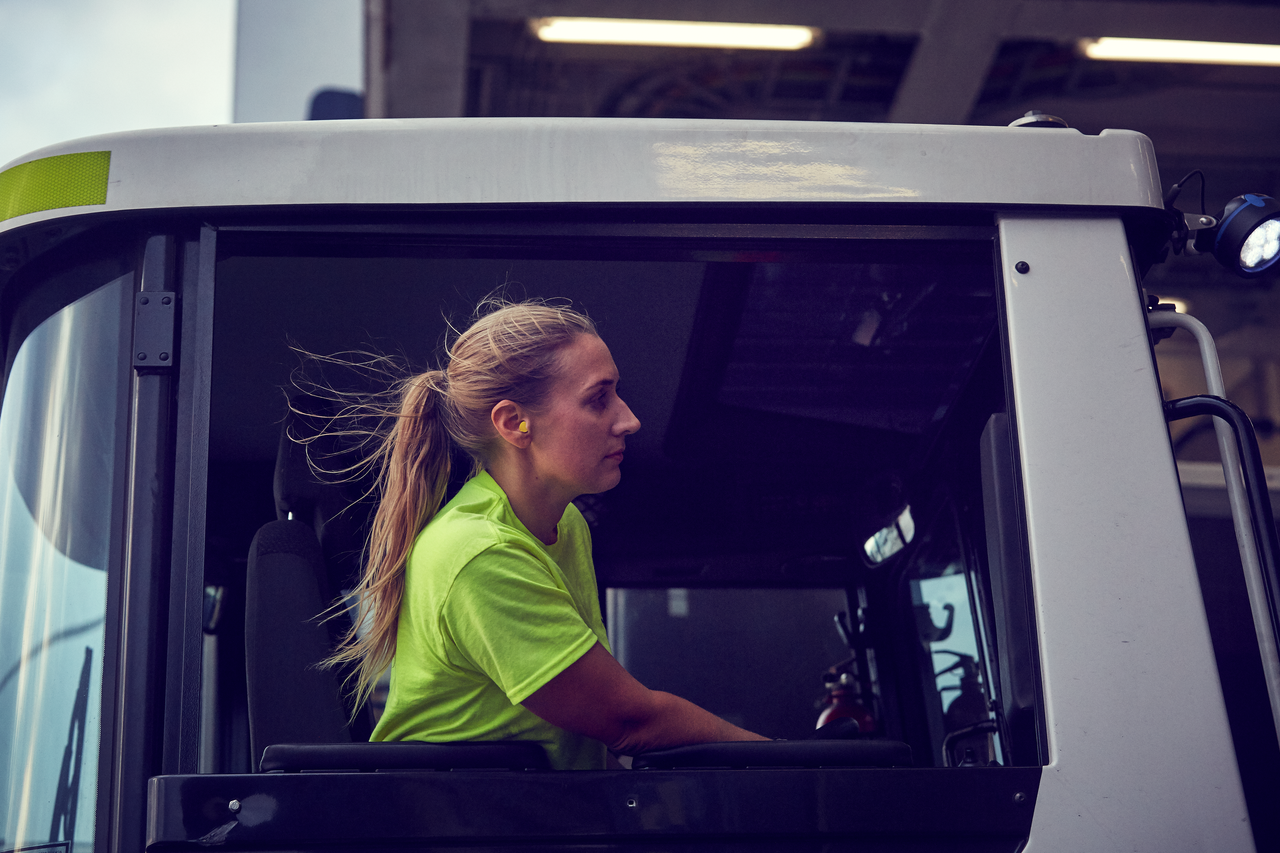Climate Plan involves all of DFDS
Getting the house in order is the third track in our Climate Plan and deals with the 10% of our total emissions not derived from ships: facilities, terminal equipment, trucks in logistics, how our buildings consume energy and what vehicles we use all matter when we measure our impact. Reducing our carbon footprint requires everyone’s efforts.

”When we say plan, we mean a plan for every aspect of our business,” says CSR Director Sofie Hebeltoft. “Carbon emissions are just part of our footprint. We need to look at sustainability in a broader sense and take everything into account, the entire circle of procurement, production, use and waste. To me, bringing the house in order means dissecting all the every-day activities that have nothing to do with ship fuel and seeing how we can do things smarter and better.”
Home is where the footprint is – for many of us
Later this year, we introduce a group-wide project about individual local improvements, throughout our locations. Rather than simply look at and measure CO2 emissions, these local projects take a more holistic view. “How can we be wiser about electricity? How much of the energy we use is renewable? How do we move around and travel? How do we handle our waste? As locations are different, there is ample room for local interpretation and adaption. The good news is that this ‘bringing our house in order’ track is where those of us who don’t work with vessel fuel can make a difference and be just a little bit more sustainable in our actions and in our systems,” Sofie says.
Testing small to possibly apply on a grander scale later
The beauty of looking at all the smaller components of our carbon footprint is that we get to be creative, experiment and try new things. Maybe a new waste management system tested in one location proves to be so fruitful that the rest of us can benefit from it, too? Perhaps we could use methanol additives in our truck fuel to make diesel last longer – and if that works, perhaps we can also use it on our vessels?
In general, we are trying to make our business more electric and less fuel-driven, and all these smaller initiatives are a great way of testing what works and what doesn’t.
“I can’t wait to start working with all my colleagues on this. This is a team effort like we’ve never tried before and I am eager to dig into ideas that are both inventive and pragmatic,” Sofie says.
DFDS has an ambitious Climate Plan that aims to make us climate neutral in 2050. It consists of three tracks:
The short-term tonnage adaption plan deals mainly with fuel initiatives for ships covering the next ten years.
The long-term plan will help us replace fossil fuels with a new generation of zero emission fuels.
Getting the house in order deals with the 10% of our total emissions not ship-related: facilities, terminal equipment, trucks in our logistics division, how our buildings consume energy and what vehicles we use.
